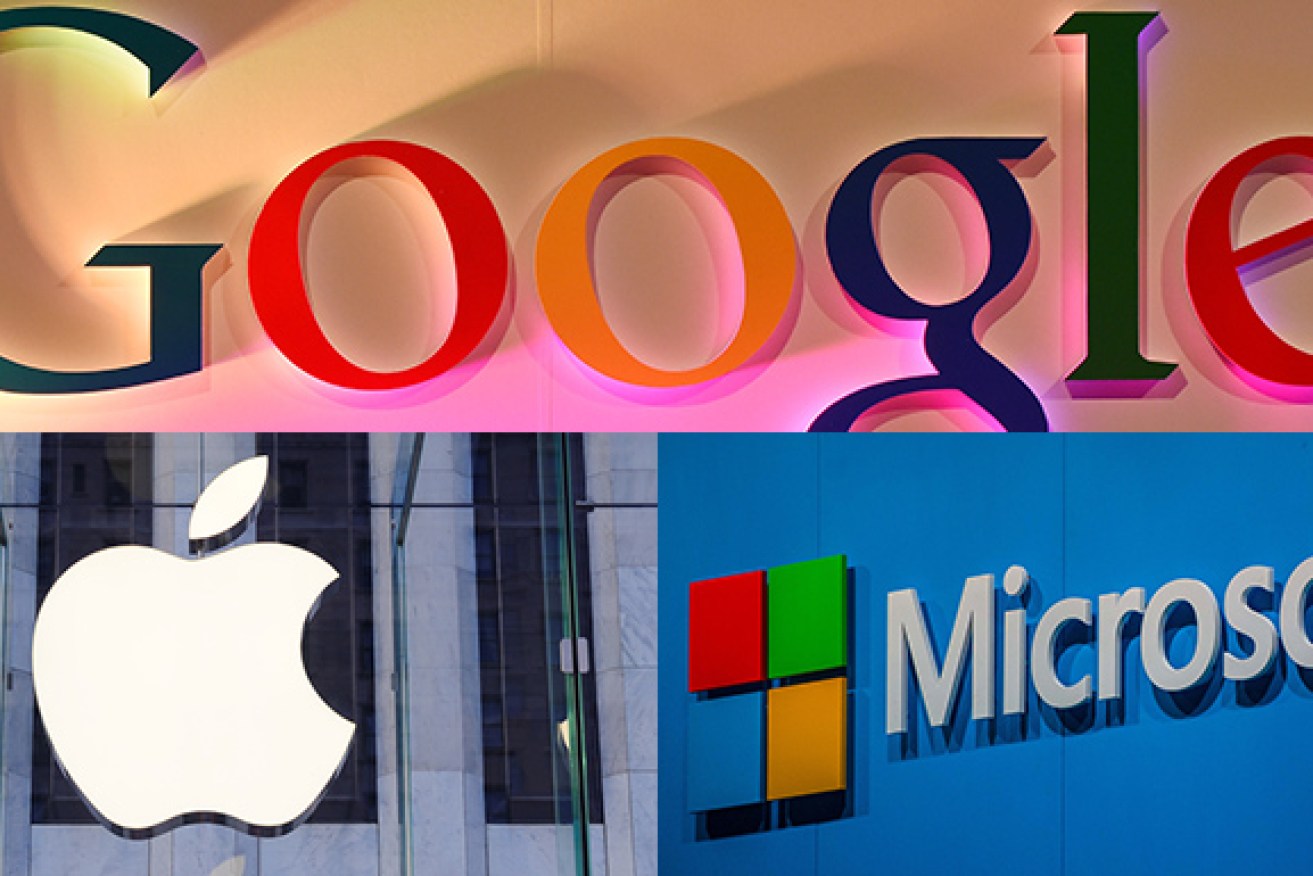Artful dodgers: how tech giants are playing us for mugs


Getty
Google and Microsoft are denying the Australian Tax Office hundreds of millions of tax dollars – and thanks to archaic tax laws, it is all entirely legal.
US tech giants Google, Microsoft and Apple, the world’s most valuable company, were grilled on their tax dodging practices by a Senate committee, and all admitted they syphoned revenue to low tax jurisdictions such as Singapore, Ireland and Bermuda, and paid minuscule amounts of tax in Australia.
It also emerged that all three companies were being audited by the ATO – a fact which the Australian Tax Commissioner had concealed in concert with Treasurer Joe Hockey.
• Corporate tax avoidance ‘like Islamic State problem’
• News Corp tax ‘badge’ revealed
• Raising the GST will hurt families, say welfare groups
Every time you click on an advertisement on Google or Microsoft websites, the revenue generated goes directly to Singapore, where it is taxed at the very low rate of 17 per cent. The money is earned from Australian consumers in Australia, and yet the deep-pocketed tech giants don’t pay a cent of tax here.
That was just one of the alarming revelations in a wide-ranging Senate committee hearing on corporate tax dodging, which took place on Wednesday.

Singapore is a favourite of big multinationals, thanks to its low corporate tax rate. Photo: Shutterstock
Google’s labyrinth
When asked how Google managed to get away without paying any tax on ad revenue, Google Australia managing director Maile Carnegie said: “We have a bit of a different business model to other people in that we don’t actually set any of the prices for [ads], that is all done by an auction.”
Greens leader Christine Milne’s questioning of Ms Carnegie revealed a confusing web of tax “minimisation” seeing revenue apparently travelling from Australia to Singapore to Ireland to the Netherlands, then back to Ireland again, before ending up in Bermuda where corporation tax is zero per cent.
The Microsoft school of tax dodging
Microsoft’s structure was very similar to Google’s. The vast majority – 95 per cent – of Google’s Australian operations are run out of Singapore, with only “consulting services” being run in Australia.
Last year, Microsoft’s Australian revenue amounted to $2 billion. Just five per cent of that – $100 million – was counted as “consulting services” and billed to the Australian books, generating $30 million in tax. The remaining $1.9 billion was taxed in Singapore.
This fact illustrates a major challenge for Australia’s taxation regime. Money that Australian businesses spend on advertising – money that 20 years ago would have stayed in the Australian economy – is now flowing out of the economy untaxed.

Ireland: an unlikely tax haven, where corporation tax is the lowest in the OECD. Photo: Shutterstock
Apple and the ‘transfer price’ question
As a product retailer, Apple Australia’s model was different from the other two. Unlike Google and Microsoft, Apple does not generate so much of its revenue through advertising and digital services, and therefore can’t carry such a high proportion of its revenue directly offshore.
Apple’s main controversy was around what is known as its “transfer price” – that is, the price at which Apple Australia buys its iPhone, iPads and iMacs off its parent companies overseas. Out of a revenue of around $6 billion last financial year, Apple’s Australian profit was around $250 million, $80 million of which went to the tax office.
The question is whether the Apple Australia buys its products off itself at artificially high prices, thus minimising profit margins in Australia, and therefore its tax liabilities.
When asked whether transfer prices were artificially inflated to minimize tax, Apple Australia managing director Tony King said, “Absolutely not.”
He said the transfer price “depends on the advanced price agreement” or APA – which is a pre-arranged agreement with the tax office to ensure companies do not pay double taxation. The method at which APAs are reached is a major concern of the senate committee.
Independent senator and committee member Nick Xenophon said the revelations “strike at the heart Australia’s sovereignty,” while Greens leader Christine Milne challenged Labor and the Coalition to find “the backbone to stand up to these corporations.”
The committee sits again on Thursday, when it will question ASIC and Treasury.








